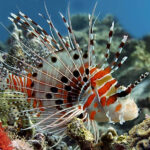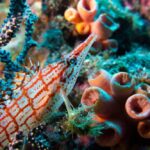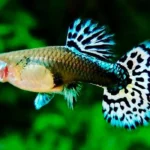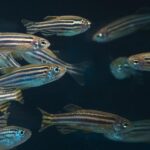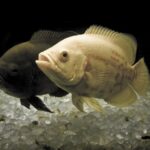Zebra Danios. These stripy wonders are a favorite among both beginner and veteran aquarists alike because they mix beauty, toughness, and relentless energy in the perfect combination. We’ll cover everything we know about Zebra Danios in this in-depth guide, from their natural habits to their optimum tank conditions, tankmates, breeding characteristics, and why these little swimmers are more than just a filler for a fish tank—they’re the life of the tank.

Tank Mates: Who Can Swim With Zebra Danios?
Ideal Tank Mates
Tetras (Neon, Rummy Nose, Cardinal)
Corydoras Catfish
Guppies
Mollies
Swordtails
Platies
Dwarf Gouramis
Snails and Shrimp (they usually leave them alone)
Avoid
Slow-moving long-finned fish (Danios may nip)
Aggressive or large fish (Cichlids, Oscars)
Solitary species that dislike high-energy tanks
A balanced community tank with zebra danios as the movement core can be visually stunning and socially harmonious.
Breeding Zebra Danios
Breeding these little swimmers is surprisingly easy, even for beginners.
The Basics
Zebra Danios are egg scatterers
Males chase females during mating
They lay hundreds of eggs at a time
Breeding Steps
Condition males and females separately with high-protein foods
Move to a breeding tank with marbles or mesh at the bottom
Let them spawn—usually happens in the early morning
Remove adults after spawning (they’ll eat the eggs!)
Eggs hatch in 2–3 days
Fry become free-swimming in 5–7 days
Feed fry with infusoria or liquid fry food initially, then baby brine shrimp as they grow.

Common Health Issues and Care
Zebra Danios are resilient but not invincible. Poor water conditions and stress can lead to illness.
Watch for:
Ich—white spots, clamped fins
Fin Rot—Frayed or disintegrating fins
Columnaris—cotton-like patches, ulcers
Swim Bladder Issues: Floating awkwardly
Prevention
Maintain stable water conditions
Avoid overcrowding
Quarantine new fish
Offer a nutritious diet
Routine care and observation go a long way in keeping your Danios healthy and happy.
Variants and Hybrids
Over the years, aquarists and geneticists have developed multiple strains of zebra danios.
Popular Types
GloFish Zebra Danio—Genetically modified for bright fluorescence
Leopard Danio—Spotted pattern replaces stripes
Golden Danio—Albino version with gold sheen
Longfin Danio-Elegant, trailing fins
Each variant brings something unique to your tank, and all share the same core traits of energy and social bonding.
Why Choose Zebra Danios?
Great personalities: Playful, curious, and engaging
Visually striking: Bright stripes or vibrant colors stand out
Good community fish: Peaceful with many other species
Responsive: Recognize feeding times and interact with owners
Zebra Danios are a lesson in how the smallest fish can have the biggest presence.

Fun Facts About Zebra Danios
They were the first fish to be genetically modified to glow! (GloFish)
Used in scientific research due to their transparent embryos and fast reproduction
Can live up to 5 years with proper care
Sleep with one eye open—literally! Danios rest, but stay alert
There’s more to zebra danios than meets the eye—they’re brainy, adaptable, and endlessly fascinating.
Diet and Feeding Habits
Zebra Danios are omnivores with a big appetite and a love for variety.
What to Feed
Flake food—their daily staple
Pellets—for more nutritional density
Frozen or live food—brine shrimp, daphnia, bloodworms
Vegetables—Blanched peas, cucumber slivers
Feed small amounts 2–3 times a day. They’ll dart to the top the moment they see food and will happily overeat if you let them. Don’t.
A well-rounded diet boosts coloration, immunity, and reproductive health.
Tank Setup for Zebra Danios
Minimum Tank Size
20 gallons is recommended for a small school of 6
Larger tanks (30+ gallons) are better for bigger schools and mixed community setups
Substrate and Décor
Fine gravel or sand substrate works well
Add plants, both live and artificial, for hiding and playing
Include rocks, driftwood, and caves for environmental enrichment
Keep open space in the middle of the tank for schooling

Conclusion
These little speedsters bring life and motion to any aquarium. They are fun to watch, easy to care for, and full of quirky social habits that keep things interesting.
From their speedy schooling dances to their tranquil community demeanor, zebra danios demonstrate that the best things in life really do come in small packages. Your zebra danios will repay you with years of energetic camaraderie if you give them room to swim, friends to go to school with, and clean water.
Therefore, look no further if you want a fish that is lively, resilient, and full of zip. The Zebra Danio is ready to zip into your heart (and your tank).
And with so many varieties and colors to work with, you can tailor your school to your taste. So the next time you’re at the fish shop, take a second glance at those tiny striped powerhouses. The Zebra Danio could be the pulse your tank has lacked.
FAQs
Are Zebra Danios aggressive?
Generally, no—they’re peaceful and community-friendly. However, if they are not kept in a large enough group, they may become nippy or chase slower fish. A school with a good size helps spread out their energy and reduces bullying.
Can I mix zebra danios with bettas?
Zebra Danios are fast and curious, and bettas are slow with long, flowy fins—an irresistible target. Some people manage this combo in larger tanks with lots of hiding spaces, but it’s not a recommended pairing for beginners.
What do zebra danios eat?
They eat a variety of foods, including
Flakes
Micro-pellets
Brine shrimp (live or frozen)
Bloodworms
Blanched vegetables (like peas)
They’re not picky, but a varied diet helps them stay healthy and colorful.
How do you tell male from female zebra danios?
Males are slimmer with a slightly more intense coloration.
Females tend to be rounder, especially when carrying eggs.
During breeding, males also tend to chase females more actively.
How long do zebra danios live?
With good care, zebra danios can live up to 5 years, though their average lifespan is around 3 to 4 years. Clean water, a balanced diet, and a stress-free environment all help extend their lives.
Do zebra danios jump out of the tank?
Yes! When startled or the water parameters are off, they are strong jumpers. Always keep your tank well covered with a secure lid to prevent accidents.

